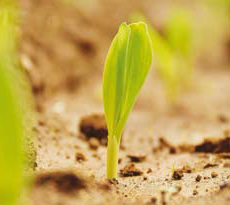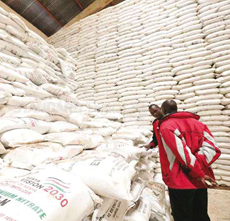Government Dismantles Cartels to Lower Market Prices
 Ten months after it was exposed how a cartel-inspired fertiliser standard was put in place, the government has begun rectifying the multibillion-shilling policy mistake even as the syndicates fight back.
Ten months after it was exposed how a cartel-inspired fertiliser standard was put in place, the government has begun rectifying the multibillion-shilling policy mistake even as the syndicates fight back.
Unbeknown to many, two years ago some traders conspired – thanks to the Sh3 billion subsidised fertiliser – and lowered the cadmium limit for the input sold in Kenya to 15 parts per million, down from 30ppm. This left the country with no choice but to get the fertiliser from a single Saudi supplier. Sources revealedthat the cartels, eager to retain their monopoly, are fighting the Kenya Bureau of Standards (Kebs) and government’s push to rectify the situation.
The move, quietly gazetted on February 23, 2018, led to the rise of fertiliser prices and guaranteed the cartels a single source for their products.
This year, after Kebs granted a waiver that allowed the import of fertiliser from different sources awaiting the finalisation of the standards review, the DAP prices for a 50-kg bag dropped from Sh2,600 to Sh2,100 – signifying how lack of competition directly affects farmers.
In 2019, when there was only one source for DAP, the price shot up to Sh3,500 per bag, thanks to the 15ppm cadmium limit.
While countries have adopted different cadmium limits, Kenya narrowed competition by opting for a measure lower than any other nation in the world.
Earlier this year, Agriculture Cabinet Secretary Peter Munya told off critics who have been fighting the decision to replace the controversial KS157:2018 with KS157:2019 standard, which puts Kenya at par with European Union (EU) limits. In May last year, the EU adopted a cadmium limit of 30ppm.
However, critics have silently been accusing Mr Munya of creating a new standard as he seeks to open competition in the fertiliser industry.
“To the contrary, I am correcting an anomaly that was created to favour particular traders,” he said during a players’ forum. “Why did Kenya adopt a standard not used elsewhere? We will make sure there is competition in the market and fertiliser is affordable.”
Political Interests  It is not clear how the cartels forced a policy change but fingers point to political interests and some distributors.
It is not clear how the cartels forced a policy change but fingers point to political interests and some distributors.
As that happened, farmers were caught between two major global phosphate producers – OCP of Morocco and Phosagro/Maaden of Saudi Arabia – whose rocks have different cadmium elements.
While North Africa, the US, China and the Middle East produce 80 per cent of the world’s phosphate, their rocks have higher cadmium limits than those of Russia and Saudi Arabia.
The commercial battle between these two groups is on if the cadmium concentration affects human health. Kebs organised a public review draft to get comments on the limit of cadmium in imported fertiliser.
Some argue that fertiliser with higher cadmium is lethal but Kenya still imports maize and wheat from countries which have adopted such limits.
No Logic
Kenya imports wheat and rice from India and Pakistan, which have no limit, maize from Mexico (no limit), Tanzania (30ppm) and Ethiopia (45ppm) and sugar from Brazil (57ppm).
“There was no logic in setting up the standard which ended up making fertiliser prices high. The country became uncompetitive in food production,” a scientist averse to the debate says. “There is no scientific study in Kenya to show that fertiliser with cadmium of below 15ppm is safer for health and the environment.”
A policy document sent to the Agriculture ministry says there is no conclusive scientific evidence on fertiliser’s contribution to cadmium in the soil and its transfer to plants, animals and humans.
The fear in the ministry is that if the current limits are maintained, imports would only be restricted to Russia and Saudi Arabia.